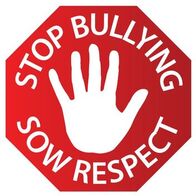What are the accepted personality characteristics of a bully?
- The bully takes pleasure in the distress of others, usually adding to it with taunts that are designed to humiliate or demean.
- The target of his bullying is considered at fault for his bullying, and he will only express that the target got what they deserved.
- The most important consideration for the bully is their need to control or dominate others.
- A bully is quick-tempered and impulsive, reacting to situations solely from a place of personal benefit, and it is not unusual for him to find it difficult to restrain himself.
- The bully is not capable of external considering, that is, seeing the situation from another person's perspective or empathy as it is most often called.
- A bully believes himself to be exceptional, that is, superior to others in every way in knowledge and response even when he has never had exposure to a subject in question.
- A bully considers himself to be entitled to whatever he desires.
- A bully is tactless, unconcerned about offending others regardless of the circumstances.
- A bully has an irrational dislike of anyone who differs in terms of religion, ethnicity, sexual orientation, or basic beliefs.
- A bully refuses to take responsibility for the consequences of their actions or simply denies any wrongdoing.
- Finally, if confronted and there is really no defense against the accusations being made, the bully has in his arsenal a strong propensity toward trying to talk his way out of the situation. Since most of his actions have no moral or justifiable grounds, he generally has no valid argument to support his actions.

In whatever the arena in life, those who are considered supporters of a bully do not generally participate in his bullying. They just want to be out of the line of fire, or they want the bully to take care of those they consider their enemies without their having to openly expose themselves. Followers of bullies, however, are a different variety. They may not initiate the bullying at the highest level; however, they definitely participate in it in whatever venues they can find.
Social media platforms have been an obvious measure of those who are followers of the unconscionable, bullying behavior of the extremists in this country. These followers have attempted to overrun social networks by hijacking the posts of people who support candidates who are aligned with maintaining democracy. When asked to support their demeaning remarks, they fairly consistently point to accusatory stories with no actual facts to back up the remarks, or they choose to ignore the factual proof when presented.
The important thing to understand at this point is that there is no rational thinking involved in these attacks because for bullies, no moral or justifiable grounds are required. Many of these extremist followers are simply concerned with protecting themselves. They feel that life has not been as good to them as it has to others. I can understand this; however, trying to find someone else to blame and proceeding to beat them down will not change the followers' lives.

From a personal perspective, I must say that the contentiousness that has developed in the media and on social networks since Trump introduced bullying as a primary political tactic has not only caused me to block and unfriend people to eliminate the rabid negativity from my online life, but has also caused me serious concern about the integrity of this nation. The office of President of the United States of America is one requiring seriousness in behavior. The persons running for this office should show respectfulness for this country, all its people, and show a high degree of competence through education and experience to perform in such a way that exemplifies the egalitarian belief on which this country was founded.
The Declaration of Independence did not treat this belief lightly, nor should we. “We hold these truths to be self-evident, that all men are created equal, that they’re endowed by their creator with certain unalienable rights, that among these are life, liberty, and the pursuit of happiness, that to secure these rights, governments are instituted among men, and that whenever government is destructive of these ends, it is the right of the people to alter and abolish them and institute new government in such form and according to such principles as seems to them most likely to affect their safety and happiness.”
These words cannot be interpreted to mean that those of a particular religious leaning may choose to bring everyone under the hammer of their beliefs. No one group gets to decide to alter and abolish these rights because it suits them. We are still a free nation. It has been a long journey getting to where we are today. We have not reached the ultimate position in terms of the egalitarian belief that sparked this country's founding. Still, we have come far enough that the resistance to it has reared its ugly head. Those who wish to take up residence in one of the way stations of the past along this journey are so frightened of change, of forward movement, that they are willing to ride the swing of the pendulum to a far extreme that will even exceed in its baseness their own desires. It is this fear of those who represent change that has been exploited by Donald J. Trump and the Republican party and is driving their followers to carry this vitriol out into the world. It has succeeded in drawing arbitrary lines to set off groups of people as being undesirable, lines between those who fear change and those who embrace it.
A country cannot operate from ignorance and fear. In 1822, President James Madison said, "A popular government, without popular information, or the means of acquiring it, is but a Prologue to a Farce or a Tragedy; or perhaps both. Knowledge will forever govern ignorance: and a people who mean to be their own Governors, must arm themselves with the power which knowledge gives."




 RSS Feed
RSS Feed

